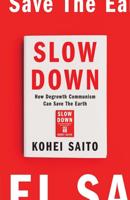Publisher's Synopsis
Davis demonstrates how Simone Weil's Marxism challenges current neoliberal understandings of the self and of human rights. Explaining her related critiques of colonialism and of political parties, it presents Weil as a twentieth-century political philosopher who anticipated and critically responded to the most contemporary political theory.
Simone Weil's short life (1909-1943) is best understood as deeply invested in and engaged with the world around her, one she knew she would leave behind sooner rather than later if she continued to take risks on the side of the oppressed. In this important and timely book, Benjamin P. Davis presents Simone Weil first and foremost as a political philosopher. To do so, he places Weil's political writings in conversation with feminist philosophy, decolonial philosophy, aesthetic theory, human rights discourse, and Marxism. Against the backdrop of Weil's commitments, Davis provides reads Weil explicitly into debates in contemporary Critical Theory. Davis argues that in the battles of today, we urgently need to reconnect with Simone Weil's ethical and political imagination, which offers a critique of oppression as part of a deeper attention to the world.








